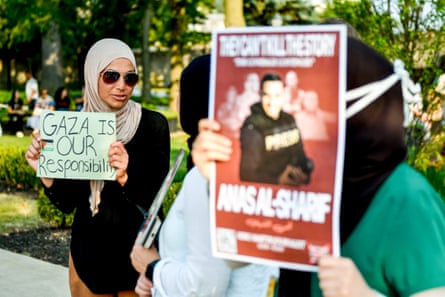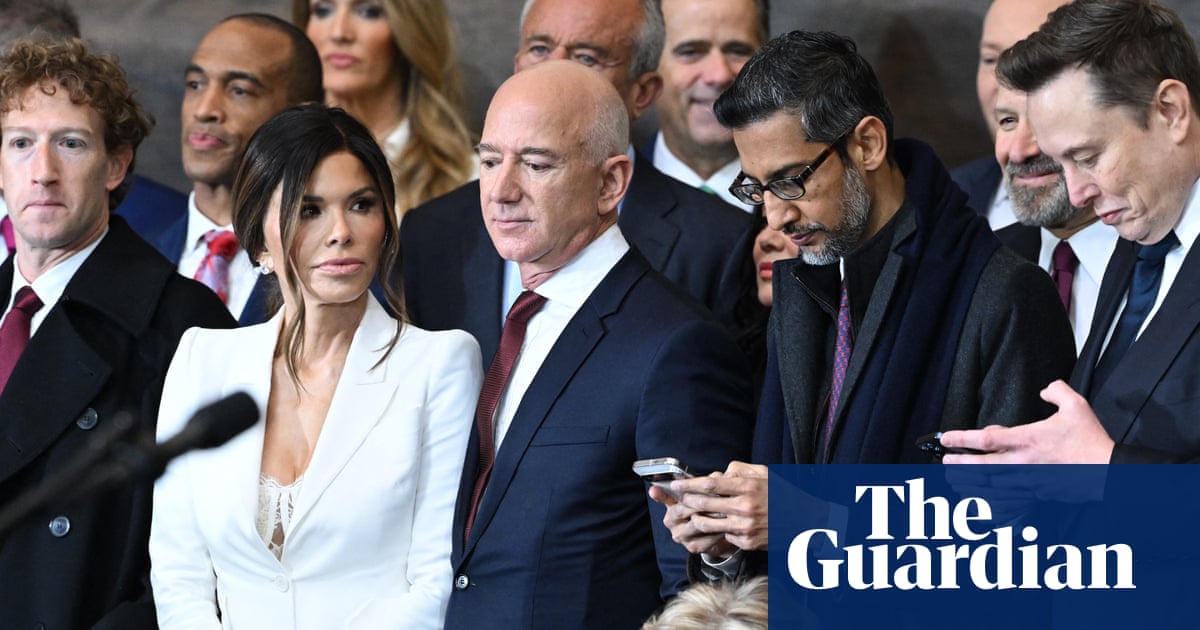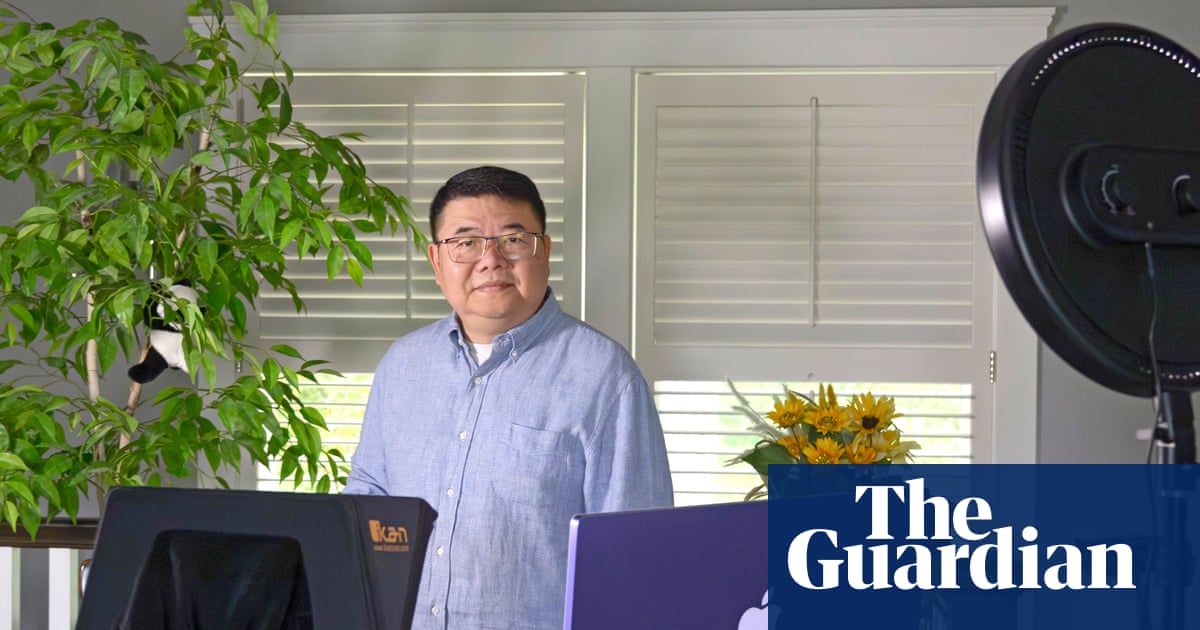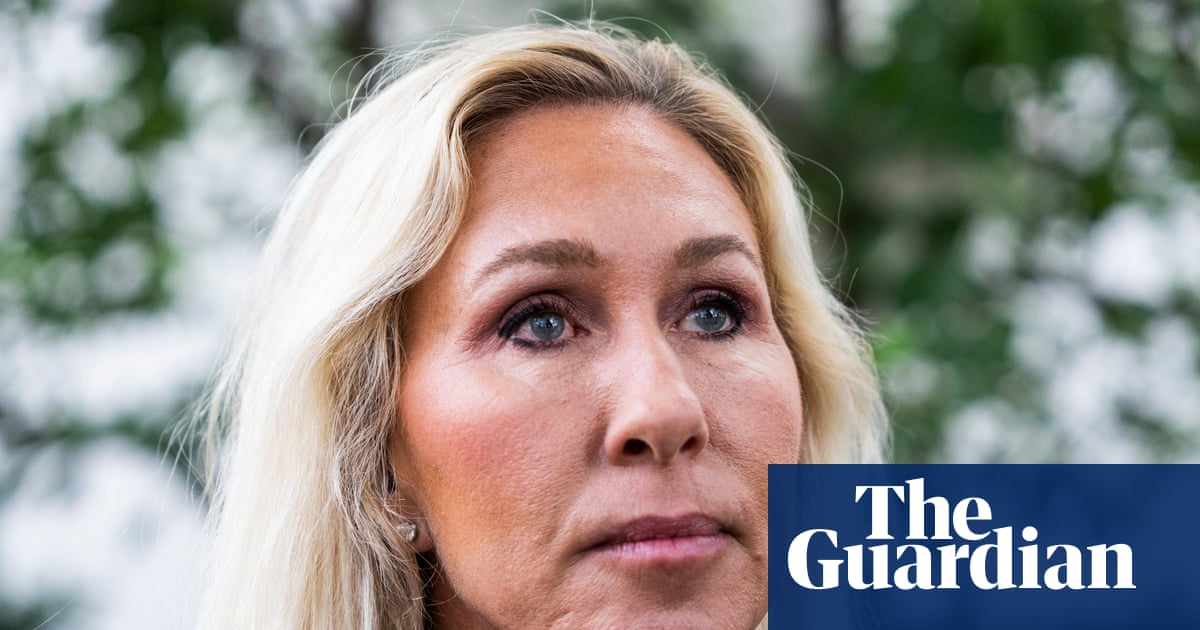Amirah Sharhan recalls it being a regular fall afternoon in October 2024.
The Yemeni American, who had been living in the Dearborn and Detroit area for four years, was preparing dinner while her mother took Amirah’s seven-year-old daughter, Saida, to a nearby playground to play with her friends.
But when the door of their home slammed open a little after 3pm, everything changed.
Saida rushed in, holding a napkin against her neck. When Amirah moved it away, she saw a long, deep cut across her daughter’s neck. A man had approached her on the playground, grabbed her head and slit her throat with a knife.
“My mind flipped. I didn’t know where I was,” Amirah recalls.
“My son was screaming: ‘Don’t die! Don’t die!’ I didn’t even know how to dial 911.”
The accused, 73-year-old Gary Lansky, who lives near the park, was caught shortly afterwards and in January was found competent to stand trial for assault with intent to murder and other charges.
“For a mom to see her daughter’s throat open. It was terrifying,” says Amirah.
“He’s a 73-year-old. How could he do that to a little child?”
Saida received 20 stitches and is scarred mentally and physically. Most of her nights are still filled with nightmares.
Amirah is convinced her daughter and mother were targeted for being Muslims; the attack happened two days after the first anniversary of Hamas’s terrorist attack on Israel and her grandmother was the only visibly Muslim person in the park.
That the accused was not ultimately charged with committing hate crimes has angered the local Muslim and Arab American communities who have been feeling abandoned and afraid since 7 October 2023. Those sentiments increased support for Donald Trump, but some are reassessing that support amid the continued killing in Gaza and ongoing threats against their community.
Islamophobic attacks across the US have risen precipitously in the two years since Hamas’s attack on Israel, which killed about 1,200 people, and the ensuing destruction Israel has unleashed on Gaza that has killed more than 67,000 people and devastated the Strip. Last year, the Council on American-Islamic Relations (Cair) recorded 8,658 complaints, a record.
Reports of antisemitism have also surged in recent years – a report released on Sunday found that more than half of American Jews say they have faced antisemitism in the past year. Data is difficult to come by because some sources tracking antisemitism don’t make clear distinctions between anti-Zionism and anti-Jewish hate. However, synagogues have widely reported increasing their security budgets over violent threats, and Jewish institutions are especially unnerved after two people were killed in an attack on a UK synagogue last week.
“Since the Pittsburgh synagogue bombing of 2018, in which 11 Jews were killed at worship, there have been anti-Jewish attacks in Poway, California (at a synagogue), Jersey City, New Jersey (at a kosher grocery store), at a rabbi’s house in Monsey, New York, and at the Coleyville, Texas, synagogue,” Mark Oppenheimer, of the John C Danforth Center on Religion and Politics at Washington University in St Louis, Missouri, wrote in an email.
While Muslim and Jewish communities face attacks that are often connected to anger over the Israel-Gaza war, a tense political climate in the US appears to be encouraging violence more broadly. After a recent shooting at a Mormon church in Michigan, the Washington Post reported mounting anxiety on the part of groups across religions. “No matter what level of violence you look at, violence against faith-based organizations is increasing,” said Carl Chinn, head of the Faith Based Security Network, a non-profit association of security professionals.
But Dearborn, the US’s first majority-Arab-American city, home to many residents who have lost family members to Israeli bombardments in Gaza and Lebanon, seems to attract particular vitriol.
Last month, a mosque in neighboring Dearborn Heights received a call from a Texas man threatening to burn down Dearborn and its mosques. On 23 September, a Virginia man was arraigned in court on terrorism charges for threatening on YouTube to attack a mosque in Dearborn.
In August, a man in a neighboring city was arrested for writing on social media that he would like to see marchers at a Muslim religious event taking place in Dearborn that month be shot. Dearborn officials have also recently been targeted by pro-Israel groups.

Residents report growing racism platformed on rightwing media outlets. In recent weeks, Fox News has devoted significant attention to Dearborn, highlighting, for example, noise complaints about mosques and an alleged dispute between a local pastor and the city’s Lebanese American mayor.
Arab Americans have come in for criticism in some quarters for voting for Trump in last November’s election. In Dearborn, a city of 106,000 people of whom about 55% have Arab ancestry, Trump won 42.5% of the presidential election vote, more than any other candidate, helping deliver Michigan, a crucial swing state, to the president. Arab American leaders in Michigan were incensed by the Democratic party and former presidential candidate Kamala Harris’s support for Israel’s war on Gaza.
Now, interviews with some of those who backed Trump last year suggest that support may be eroding.
Faye Nemer, the founder of the Dearborn-based Mena American Chamber of Commerce, which works to build economic and cultural exchanges between organizations in the Middle East and US, says that many among the Arab American community who backed Trump in last year’s election did so on the premise that he would be a president of peace. She was among a cohort of Arab Americans who welcomed and organized Trump’s visit to Dearborn just days before the presidential election last November.
“We’re cautiously optimistic about this ceasefire deal [but] it’s become somewhat problematic – what was promised during the campaign cycle versus what we’re seeing occur on the ground,” she says.

Nemer says she believes there’s a shifting of opinion in the Arab American community. “I think they are in for a rude awakening come the midterm elections,” she said of the Republican party. “There should be some introspection there.”
But in addition to fear and disappointment, there is also defiance.
On Saturday, dozens of people marched in Dearborn’s streets in protest of the ongoing bombardment of Gaza and the detention of members of the Global Sumud Flotilla by Israel. At a convention held in Dearborn last month, Michigan’s lieutenant-governor, Garlin Gilchrist, called Israel’s war on Gaza a genocide, becoming one of a tiny but growing number of US politicians to do so. Gilchrist is running for governor of Michigan as a Democrat in next year’s election.
In the meantime, Saida Sharhan has had to move to a new school because of her former school’s proximity to the site of the attack. The park that’s a short distance from her home where she once played with her friends is now off limits.
“Two days ago, she woke up me and her father, screaming. She was shaking,” Amirah, her mother, says.
“She told me it’s the same dream all the time – the park is full of blood and [the attacker] telling her: ‘I’m coming back for you.’”
“I don’t feel safe any more,” says Amirah, “like I used to.”

 German (DE)
German (DE)  English (US)
English (US)  Spanish (ES)
Spanish (ES)  French (FR)
French (FR)  Hindi (IN)
Hindi (IN)  Italian (IT)
Italian (IT)  Russian (RU)
Russian (RU)  3 weeks ago
3 weeks ago
























Comments